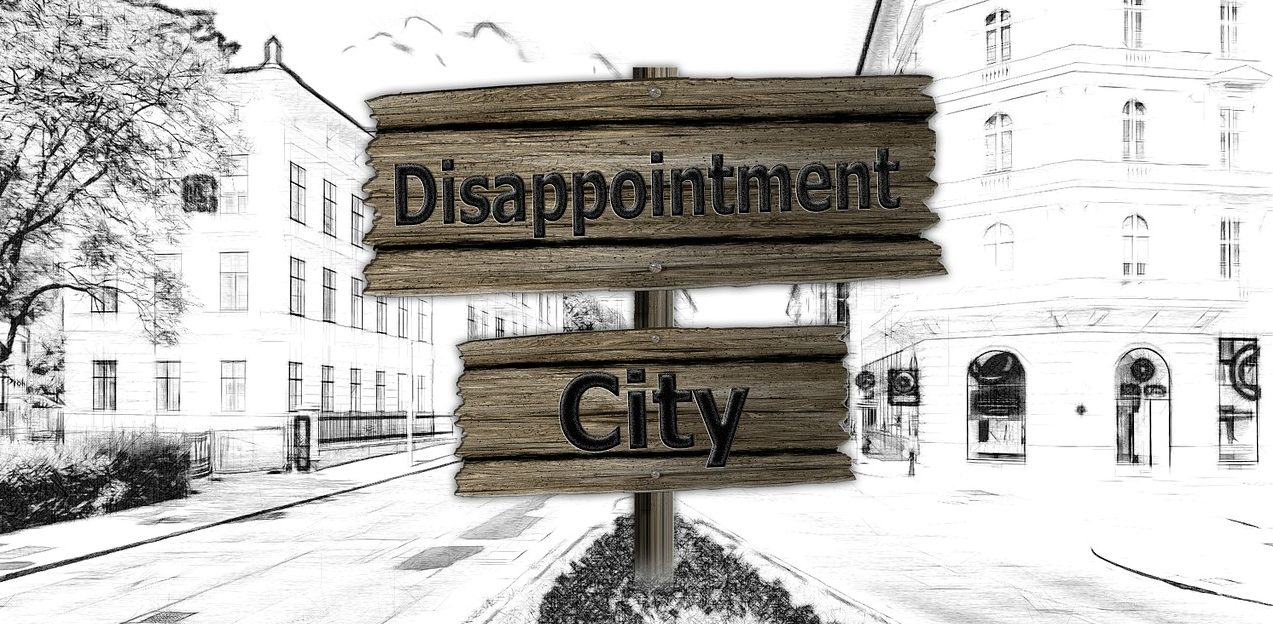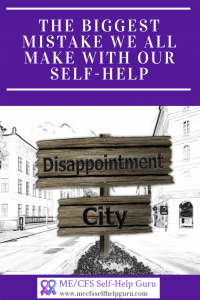This is a post I wrote especially for ProHealth’s Inspirational Corner and first appeared there about 2 months ago.
With illness like ME/CFS, Lyme disease and Fibromyalgia, self-help can play a big part in our well-being. When little help is available from the medical profession we can be very motivated to do what we can to minimise our symptoms and to be as happy and as healthy as possible. However, there is one thing that is guaranteed to get in the way of our progress despite all our good work. And yet it’s the most natural thing in the world: wanting to see results!
We do things because we want to see a change; we take extra rests during a crash or flare because we want to get back to where we were; we change our diet wanting to see our gut health symptoms improve; we take supplements wanting to have more energy and vitality; we meditate and learn relaxation skills wanting to be able to sleep better. Self-help is hard when you have so little energy and in order to find the motivation to keep at it we fixate on where we want to be as a result of it. But that attachment to outcome brings a whole host of problems that ultimately spoil our efforts and impede our progress.
As a coach, I understand how belief in the results is essential for motivation and often encourage people to keep their eye on the prize. However, over the years of working with people with this kind of illness I’ve noticed how this can so easily turn into the kind of attachment that just gets in the way.
Why attachment gets in the way
Quite simply, when we are desperate to see a result we feel frustrated and disappointed when we don’t see it, or at least when we don’t see it fast enough. These feelings bring tension into our body which gets in the way of our progress. This tension may even add to a flare or crash. If your body is already perceiving itself as being under threat (by not having enough energy for functioning or because of the pain signals it’s receiving), that tension will just add to the strength of the threat perceived. It will also be using energy that could otherwise be used more effectively and could be feeding into and amplifying secondary pain signals.
In order to give all our self-help the best chance of getting results, we need to approach it from a place of being at peace, which basically means being accepting of what is in this moment, which means not being attached to the results you want to see.
How to let go of attachment
The first step to any change is always awareness. When you notice a sense of striving or desperation around what you’re doing, then it’s likely that you’re feeling attached to a particular result. Frustration and disappointment are other indicators of that attachment. Once you have the awareness that attachment is present, the next part of dealing with it is absolutely crucial: acceptance, understanding and compassion. It’s totally understandable that you feel this way in this situation! It’s OK that you’re feeling this sense of desperation or frustration, they are totally normal and natural responses; it’s totally understandable to want things to be different when you’re suffering. Then (and only once you’ve offered yourself this compassion) you can gently remind yourself that attachment isn’t serving you. Remind yourself that accepting the way things are and being at peace with it, is going to give your body a better chance of healing; that your self-help will be more effective without that tension.
Being motivated without attachment
In order to be motivated to do the 101 things I do for my self-help, I still need to believe in what they can do for me and where they could take me. I’m just very careful not to get into wanting to see a specific outcome in a specific time frame. Instead I do my self-help with the intention of being as happy and healthy as I can be today. I trust that whatever I do for my health today will have a positive impact on my future too, without fixating on wanting to get there. I still have an intention for where I’d like to move towards, but instead of focusing on getting to the destination I pay attention to the fact that in this moment I am moving in the right direction.
For example, when I’m in an extended crash, I let go of wanting to feel better each day, and instead focus on being accepting of where I am, and peacefully distracting myself while I wait for the worst to pass. I trust that it will, I trust that I am moving forward (however imperceptibly), and I keep my focus in the present moment, knowing that this is the best thing I can do for myself right now.
When I am able to let go of wanting to see the results, life is just so much more relaxing. I know that this relaxation is creating the best conditions possible for my healing. I know that I am doing the best I can do for myself to keep myself moving forward.
Image courtesy of pixabay.com







Love this website, such honesty and so much reaffirms and help
Really helpful post.
Thank you Ed!